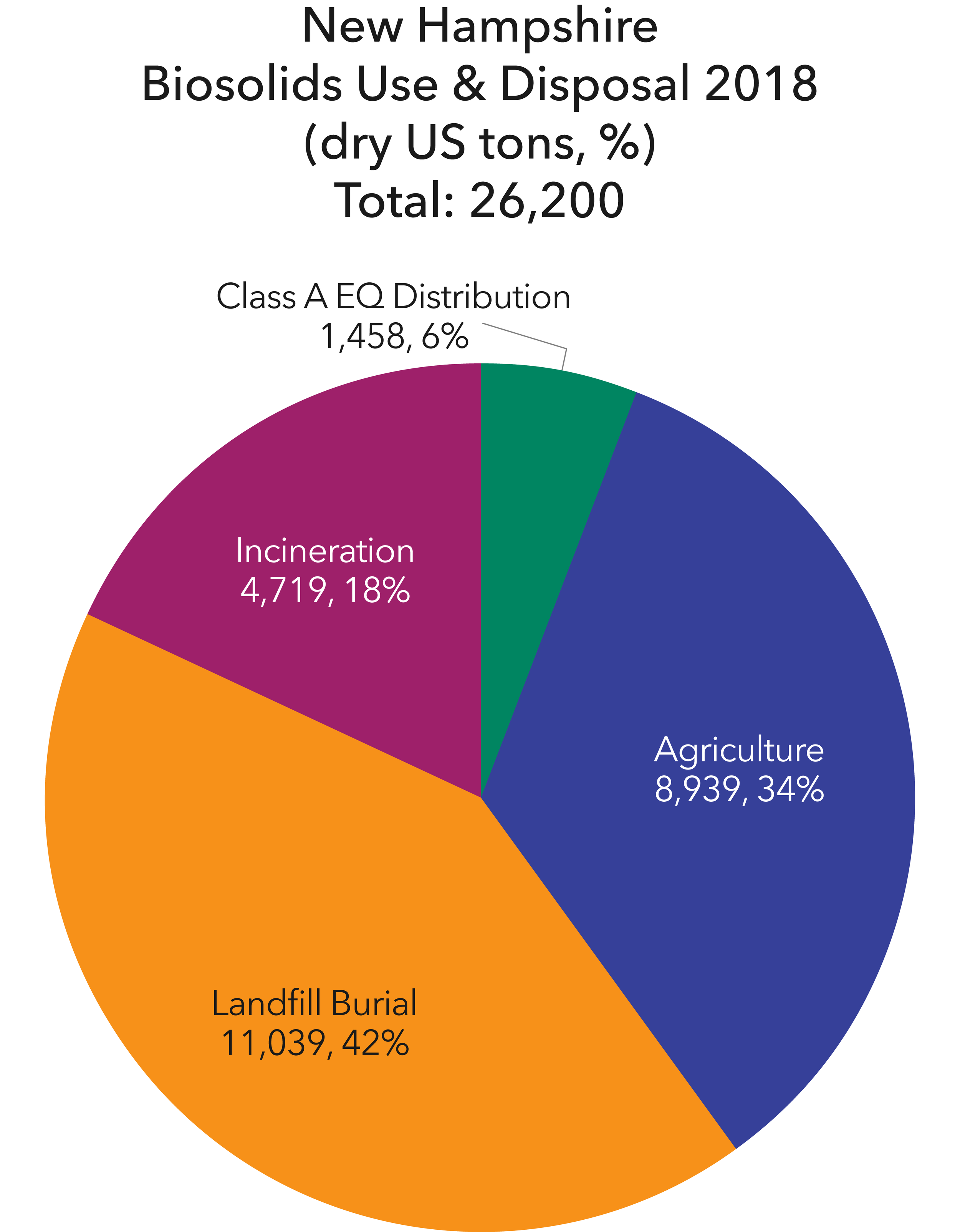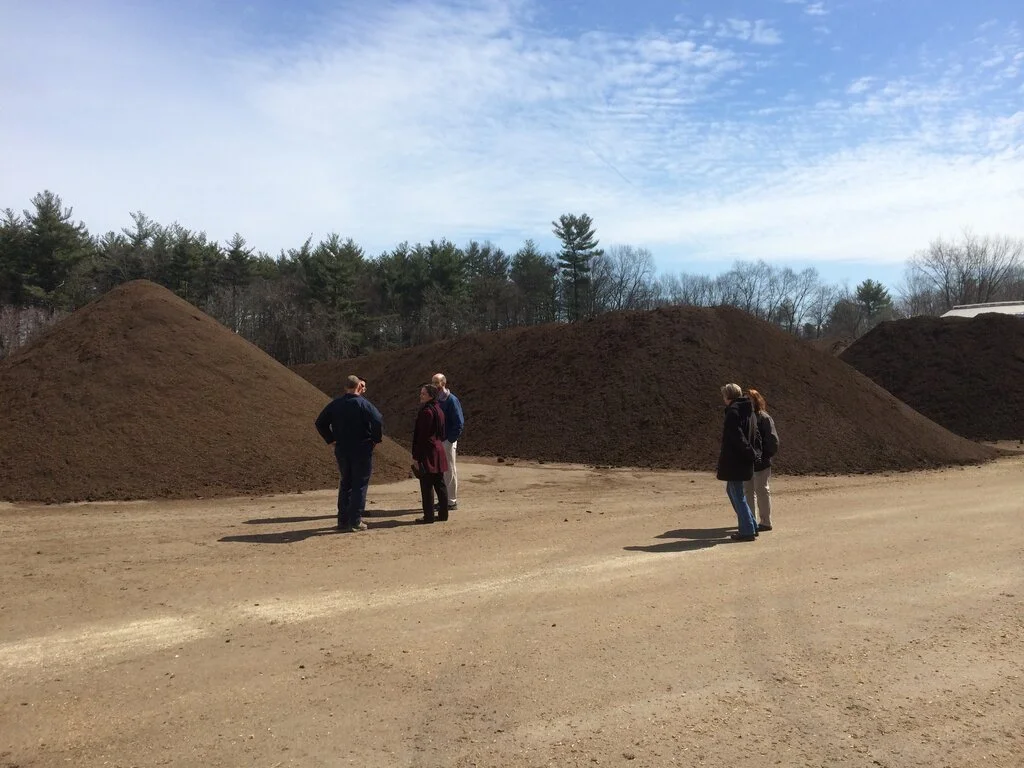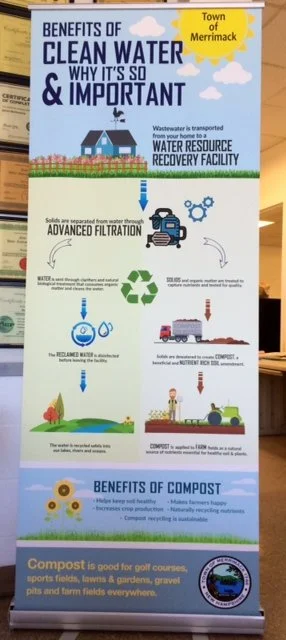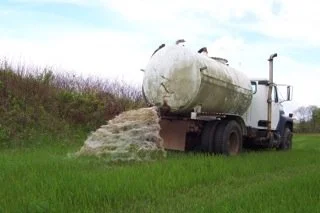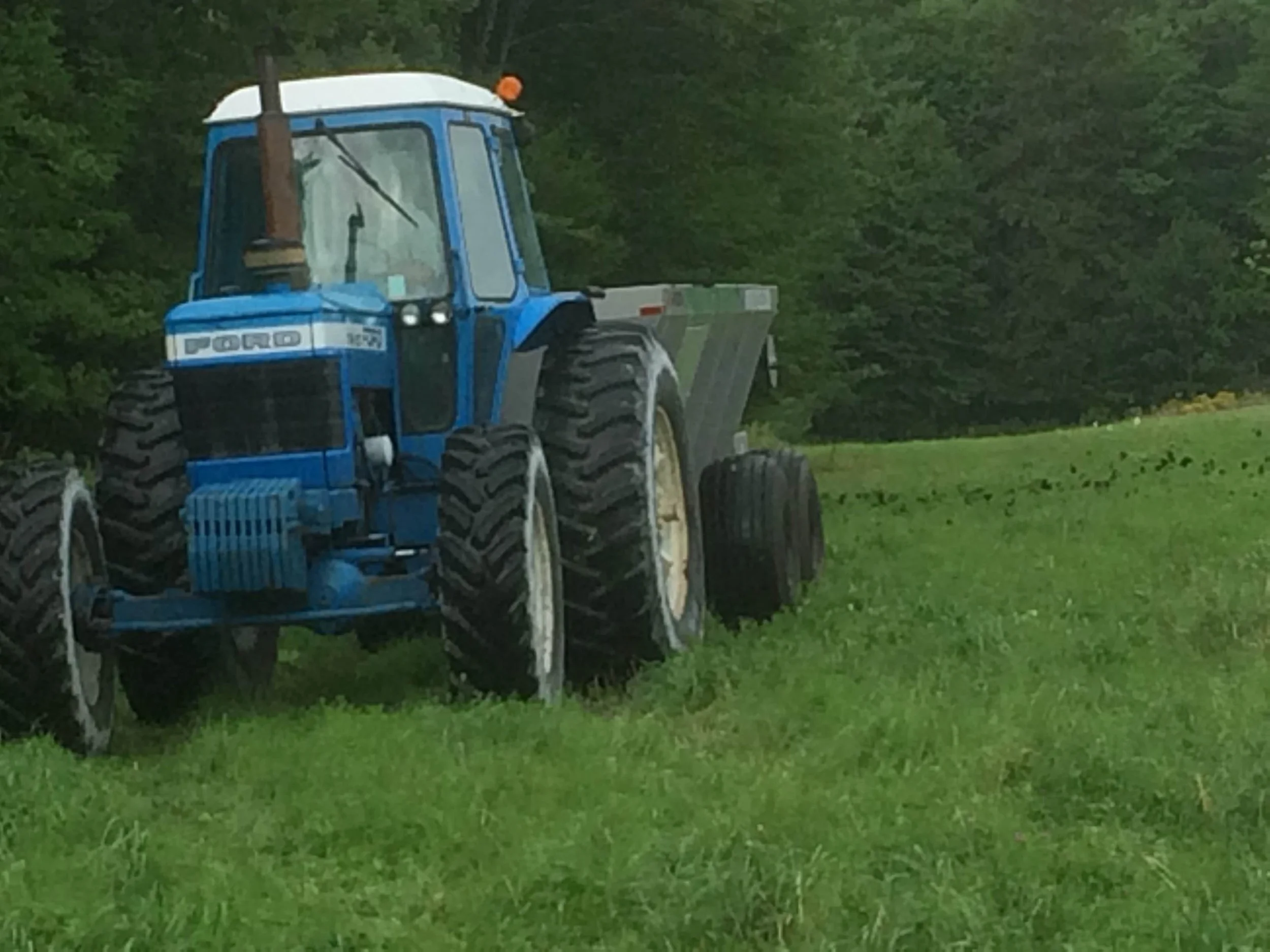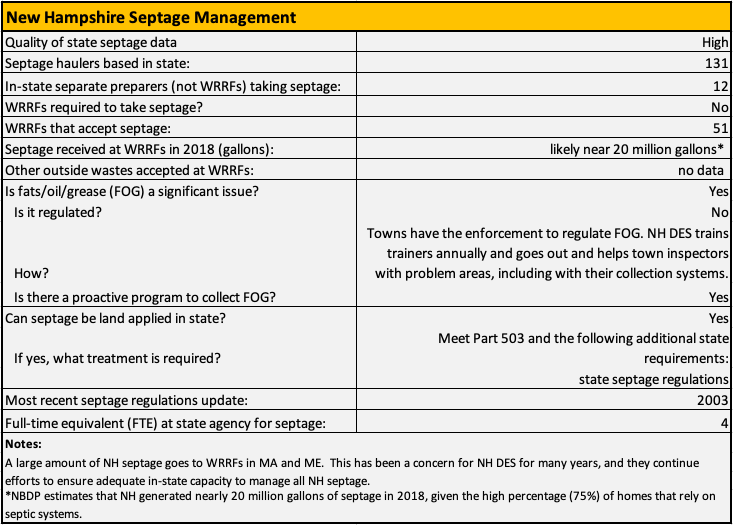State Data
Confidence in data for this state:
HIGH
2018 data unless noted.
Definitions
Terms used on this website and in data sets are defined & discussed here.
Touring the Merrimack compost facility, where, on this early spring day, cured compost windrows are ready for the spring rush of compost sales. Photo courtesy of NEBRA.
Banner by Town of Merrimack & RMI. Photo courtesy of NEBRA
Septage land application. Photo courtesy of NEBRA.
Surface application (“topdressing”) of biosolids on a hay field in central NH. Photo courtesy of NEBRA.
State Statistics Dashboard
State Summary
● More about NH biosolids: https://www.des.nh.gov/land/biosolids.
● New Hampshire, a mostly-rural state in northern New England, relies on all 3 options for managing wastewater solids (see graph, left). It has had robust land application programs since the 1980s, regulated by the NH Department of Environmental Services, which has always had several staff assigned to overseeing biosolids and septage management. State regulations require site permits for Class B biosolids and apply many additional requirements beyond federal regulations. In the 1990s – 2000s, bulk biosolids were widely used for reclamation of sand and gravel mines and capping of closing landfills, as well as in agriculture. More recently, bulk Class A (alkaline stabilized, including from Concord and the Resource Management, Inc. (RMI) treatment facility) and Class B biosolids have been used mostly on farms, where they support the growth of feed corn and hay crops.
● Nashua, the second largest city (pop. ~91,000), built the state’s only egg-shaped digester in the 2000s and produces Class B biosolids that are applied on farms – in 2018 by Casella Organics.
● The biosolids from Concord (pop. ~43,500), the state capitol, have been land applied on local farms by RMI, making NH perhaps the only state to have bulk agricultural land application happening within sight of the capitol buildings. Over the past two decades, Concord biosolids were treated to Class A standards with advanced alkaline stabilization. However, in 2020, because of concerns about potential liability and future regulation of biosolids related to PFAS (a family of fluorinated compounds that is getting a lot of attention in New England especially), Concord decided to start sending its solids to Quebec, under contract with Englobe, where they are used in mine reclamation.
● Composting of biosolids has occurred at the Merrimack WRRF for decades, and several other biosolids composting operations have come and gone (Dover, Milford) or continue (Claremont, Woodsville). A few NH WRRFs, including Seabrook, have sent their solids to the Casella Hawk Ridge Compost Facility in Unity, ME.
● Since the 1980s, Manchester, the largest city in the state (pop. ~115,000), has used incineration for solids disposal. The resulting ash has been used increasingly in recent years in soil blends, providing phosphorus and trace elements.
● There are two major landfills in the state, at Rochester (owned and operated by Waste Management) and Bethlehem (Casella Organics). Many small WRRFs around the state rely on landfill disposal, as do Berlin, Hanover, Keene, and Portsmouth.
● Like other New England states, NH has adopted some of the strictest standards in the world for PFAS in drinking water and groundwater, and this has caused uncertainties about ongoing biosolids recycling in the state and region, causing the costs for wastewater solids use and disposal to increase dramatically in 2020-2021, by as much as double.
● Septage is mostly managed by disposal at WRRFs, including in state and out of state (e.g. at northern MA and southern ME WRRFs). There have been several septage treatment facilities that, in 2018, managed perhaps 5% of the state’s septage. Septage can be land applied, and has been at a few permitted sites for decades, following state and federal treatment requirements. An estimated 5% of septage was land applied in 2018. See graph at left.
Sheep graze a closed municipal landfill that was capped with biosolids soil, ensuring a healthy vegetative ecosystem protecting the landfill. Photo courtesy of RMI and NEBRA.

